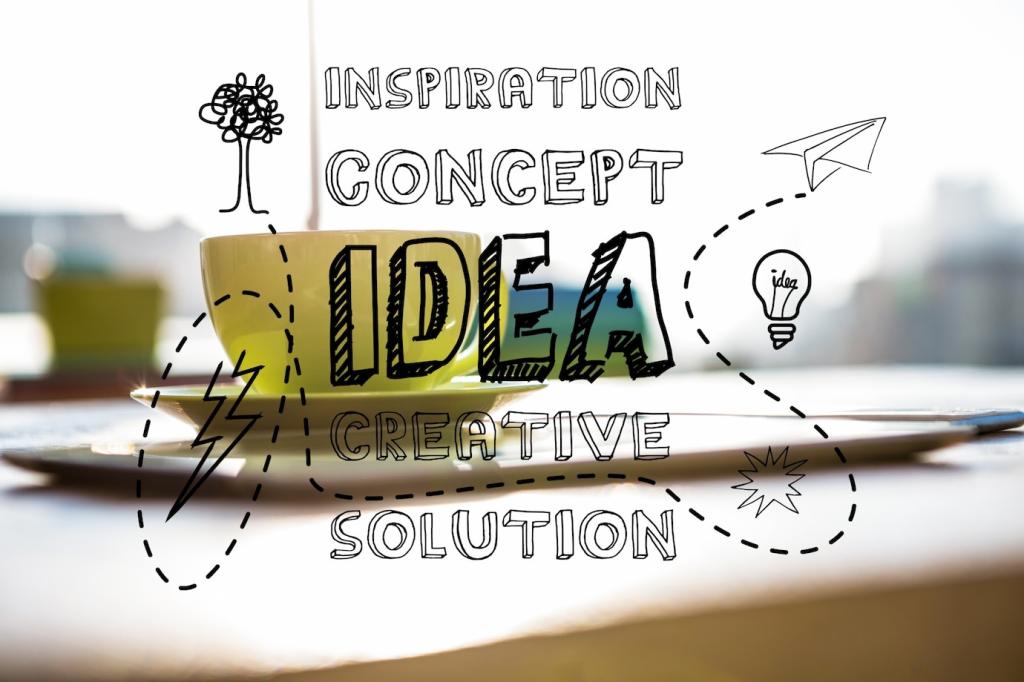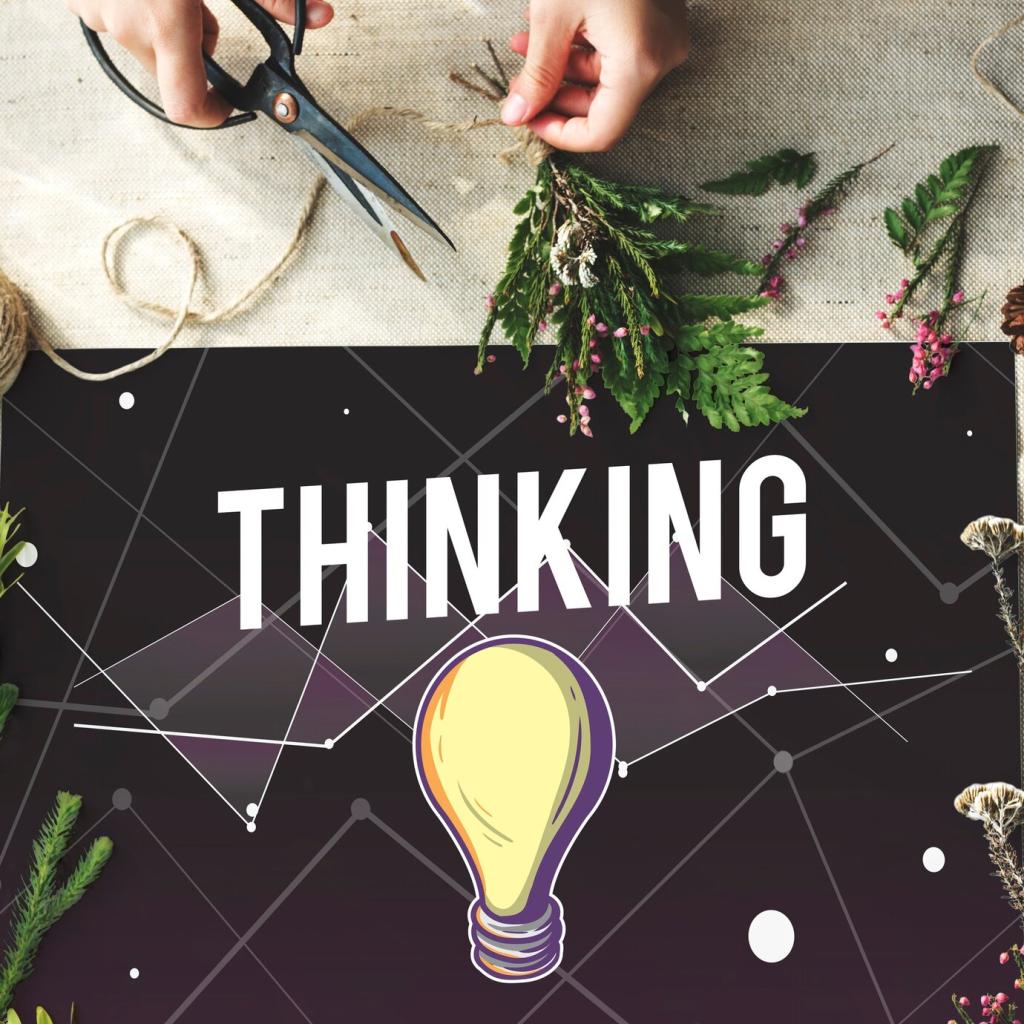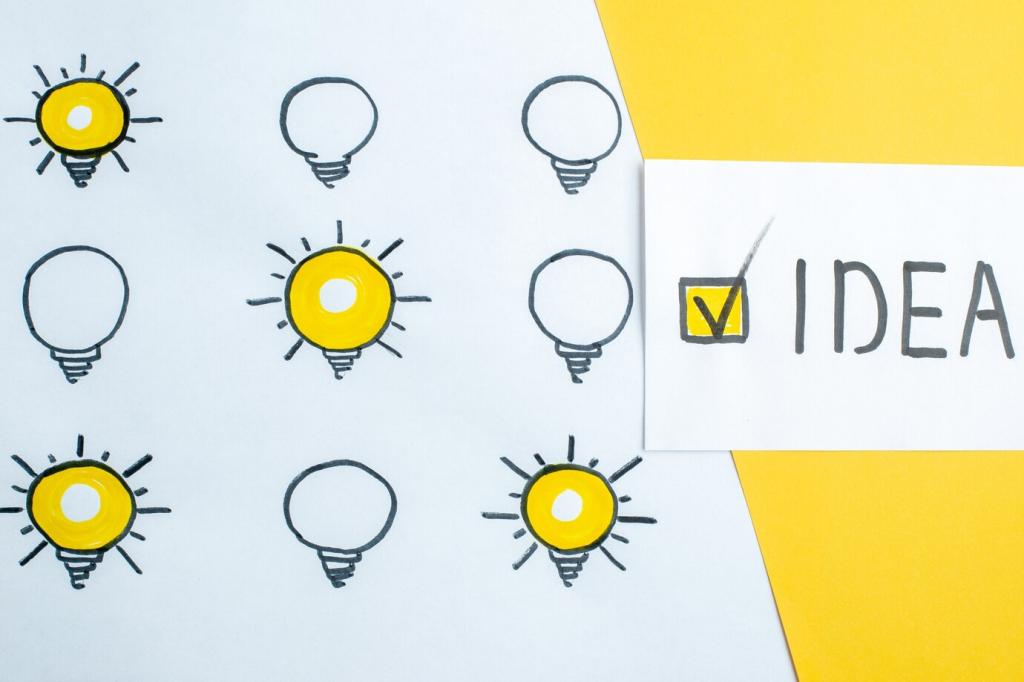Revolutionary Brainstorming Strategies for Teams
Today’s chosen theme: Revolutionary Brainstorming Strategies for Teams. Ignite bold collaboration with proven frameworks, human stories, and modern rituals that transform scattered ideas into shared momentum. Subscribe to stay inspired and share what your team wants to revolutionize next.

From Post‑it Chaos to Structured Flow
Swap open shouting for structured rounds using SCAMPER or a Lightning Decision Jam. Assign clear prompts, timeboxes, and constraints, then rotate roles so every voice leads once. You will capture smarter ideas, fewer duplicates, and clearer next steps. Try one today and tell us what changed.
Cognitive Diversity as the Engine
Mix disciplines intentionally: analysts with designers, support agents with engineers, novices with experts. Diverse cognition multiplies angles and reduces blind spots. A quiet analyst once asked, “What if failure is the data?” and that single question redirected an entire roadmap. Comment with which roles you will invite next.
Psychological Safety First
Revolutionary brainstorming starts where people feel safe to be wrong. Borrow a tactic from psychological safety research: begin with a “first idea wrong on purpose” round to reduce perfectionism. Use no‑interrupt rules and plus‑one builds. Ask your team to rate safety today and share your plan to raise it.



Digital Rooms That Feel Human
Asynchronous Storms
Open a 24‑hour idea window in a shared board with silent contribution first. No likes or comments allowed until the window closes; then cluster and vote. This beats time zones and reduces performance pressure. Test it this week and share the most surprising idea your team surfaced overnight.
AI as a Quiet Facilitator
Use AI to cluster duplicates, extract themes, or turn raw notes into “How Might We” prompts. Keep human judgment for ranking and risk. The machine tidies; the team decides. Start small, measure time saved, and tell us which prompt gave you the clearest breakthroughs.
Rituals That Translate Online
Begin with a one‑minute music cue, run fifty‑minute creative sprints, and finish with emoji‑only reactions to keep tempo high. Use a two‑minute stretch between rounds and a visible timer. These simple habits sustain attention. Subscribe for our curated playlists and share your team’s favorite opening ritual.
Facilitation Mastery for Bold Teams
Lightning Decision Jam, Step by Step
Collect problems silently, vote, transform the top ones into challenges, generate solutions, vote again, and build an action list. A team in procurement used this flow to move from stalled negotiations to a prototype agreement in forty‑eight hours. Try it and share your best tweak to the template.
The Two‑Note Rule
During ideation, participants may only add questions or builds—no debates, no speeches. This trims ego, reduces defensiveness, and keeps momentum rolling. Teams report sharper thinking and shorter transcripts. Test it in your next session and post whether your conversation felt clearer and kinder.
Timeboxing and Energy Waves
Use a 7‑15‑7 rhythm: seven minutes to diverge, fifteen to converge, seven to decide next steps. Break every fifty minutes and keep sessions under ninety to match natural energy cycles. Rotate facilitators and track an energy score. Share your best timebox formula with the community.


From Ideas to Action Without Losing Momentum
Rewrite vague goals as focused prompts and job stories. “Improve onboarding” becomes “How might we help new users succeed by minute five?” That clarity keeps ideation grounded. Drop your before‑and‑after rewrite below and inspire another team’s next session.
From Ideas to Action Without Losing Momentum
Score options together using quick evidence, not gut alone. Choose one high‑impact, low‑effort bet for the next two weeks and assign a single accountable owner. Public commitment creates momentum. Comment with your first two‑week bet and we will feature the bravest pick.
Make It a Culture, Not an Event
Hold a fifteen‑minute retro after each session. Ask: What surprised us? What felt heavy? What principle did we learn? Log outcomes, not opinions. Over time, your playbook writes itself. Share your sharpest debrief question and we will add it to our community collection.

Make It a Culture, Not an Event
Track build‑rate, diversity of contributors, and time to first test rather than raw idea counts. Celebrate thoughtful attempts, not just wins. This rewires incentives toward exploration. Subscribe for a lightweight dashboard template and report one metric you will start tracking today.
